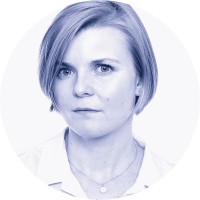Breastfeeding is a personal, intimate and private practice, but it is also a matter of public health. More than 800 000 infant mortalities could be prevented each year if mothers in low-income countries would breastfeed their babies rather than use infant formula.

Photo: Sturlason
‘Breast is best.’ We have known this for a long time, but never before have we known so much about the reasons why. Breast milk protects against diarrhoea and respiratory and middle-ear infections. In countries with a high infant mortality rate, protection against these illnesses could save the lives of 823 000 children annually if 90 per cent of mothers would breastfeed (1). Breastfeeding also appears to result in a slightly higher IQ; modest at the individual level, but an untapped resource at the population level (2).
Breast milk is personalised medicine – the milk affects gene expression in ways we have not previously understood (1, 3). Breast milk also has an impact on the infant’s microbiome, in part through saccharides which are not absorbed, but which stimulate the growth of beneficial gut microbiota (4). Via the recently discovered entero-mammary pathway, the mother’s living gut bacteria are taken up by dendritic cells in the mother’s intestine before they are transferred to the milk, thereby becoming a part of the child’s microbiome (5). In the years ahead, we can expect to learn more about how breast milk affects disease and health through the microbiome.
Mothers also derive health benefits from breastfeeding: About 20,000 breast cancer deaths each year in mothers in low-income countries could be avoided if more of them breastfed. In addition, breastfeeding helps to prevent ovarian cancer and diabetes (1).
Breastfeeding is an almost perfect option when it comes to safeguarding the climate and environment. Substantial resources are required to produce infant formula. Cows, factories and long-distance transport all produce greenhouse gases. Four thousand litres of water are needed to produce 1 kilo of formula (2). Consumers of formula need to have clean water, which often comes in bottles from far away, and preparation and sterilisation require energy. The plastic packaging and nursing bottles end up in landfills. The leftover formula that the baby does not finish spoils quickly and often must be thrown away. This is very different from breastfeeding, which requires very few resources (two sandwiches, some fruit and 1–2 litres of water per day), no packaging, no plastic, and no waste.
In low-income countries, infant formula is an unsafe alternative. Not everyone has access to clean water and a heat source for boiling water and sterilising bottles. In addition, the consumers must be literate in order to understand the mixture ratio. If a mother stops breastfeeding, she must be sure there is enough money to buy formula for the entire period of her baby’s infancy. Mothers who bottle-feed their babies are vulnerable in crises and disasters. In Yemen, the breastfeeding figures are low, and during the civil war babies have starved to death because the mothers do not breastfeed and they have not had stable access to infant formula (6, 7).
In the 1970s, Nestlé was boycotted for its unethical marketing of infant formula in poor countries. As a result, the World Health Organization devised a code for how infant formula should be marketed. The code states that infant formula must not be marketed as a superior alternative to breastfeeding and that free samples must not be distributed (8). Nonetheless, this still happens frequently in low-income countries.
Health workers receive money from the manufacturers to hand out samples to pregnant women. The manufacturers promise that their product will make the child smarter. If a woman is a loyal customer, she might also receive otherwise unattainable products, such as a tricycle. But this comes at a cost. A report from Save the Children gives examples of women who go hungry or who do not have food for their older children because they spend their money on infant formula (8).
Formula manufacturers earn huge profits. Sales have increased five-fold in the past 20 years, much more than the population growth would suggest (8). The Norwegian Oil Fund is the second largest investor in Nestlé, and Save the Children is now pressuring the government to exercise more active ownership and stop the unethical marketing of infant formula. This is a step in the right direction.
When breastfeeding has such obvious health-related benefits, it should be a highly prioritised public health measure to disseminate information about it around the world. However, perhaps this issue does not get much attention because breastfeeding belongs to the ‘women’s sphere’, which has low status and priority.
Part of being a mother is wanting to give her child what she believes to be the very best. Mothers in Norway endure bleeding nipples and worse in order to breastfeed, and if they must give up, it is often a painful decision. Mothers in low-income countries starve themselves so they can afford to buy infant formula. We cannot accept that a cynical industry deprives vulnerable mothers of the opportunity to make an informed choice about what is best for them and their child.